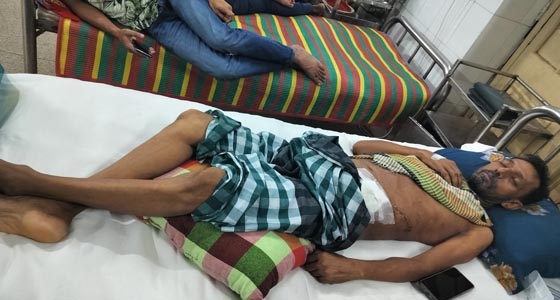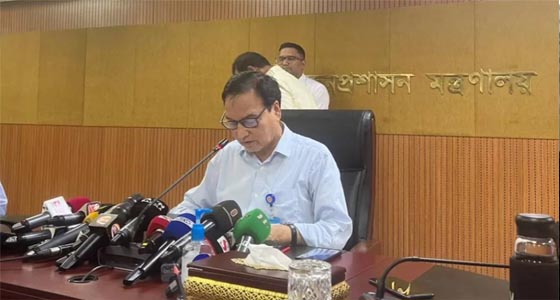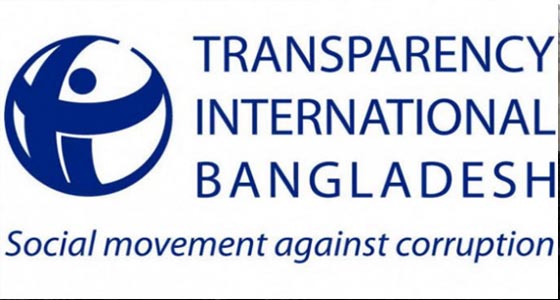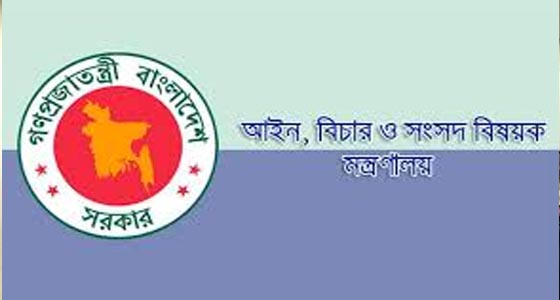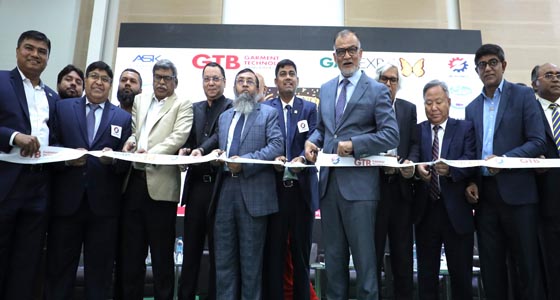Only breadwinner of family Latif spending days at hospital with uncertainty
- Last Update : 03:39:01 pm, Friday, 13 September 2024
- / 902 Read Count
By Syed Rubaiyat Habib & Mohiuddin M Mahi
Abdul Latif, 48, a shopkeeper hailing from Laxmipur district is passing hard time lying on a bed at the Dhaka Medical College and Hospital (DMCH) as he was indiscriminately hacked by Chhatra League and Jubo League men as he joined a joyous procession following downfall of the autocratic ruler Sheikh Hasina.
Latif, the sole breadwinner of the family, is now worried about his future as the doctors are not certain about when he will recover fully and lead a normal life.
Latif fell prey to the incident when he joined a joyous procession at Bhuiyan Haat of Char Ramich union under Ramgati upazila in Laxmipur district around 3.30-4.00 pm on August 6 after the fall of the ousted prime minister Sheikh Hasina.
The Chhatra League and Jubo League men attacked people participating in the procession and Latif became a victim to it. As he was moving with the procession, a group of Chhatra League and Jubo League men carried out brutal attack on him leaving him critically injured.
Before understanding anything, innocent Latif became a victim of the cruel groups — as they indiscriminately hacked him with machetes, sticks and rods creating a big hole in his belly.
Intestines inside his belly came out due to continuous hacking. Hearing the news, Latif’s relatives reached the spot and tied up his wound with a piece of cloth so that the gut inside the belly could not come out from his body.
Bloodied Latif was, subsequently rushed to the nearby Sadar hospital but the on-duty doctors, after seeing his wound, immediately referred him to DMCH.
He was admitted to DMCH at 11 pm on the same day, said Latif’s wife Bibi Asiya, adding: “My husband then underwent an operation which lasted from 12.30 am (August 7) to 5.30 am.”
After keeping him in the post operative room for one day, he was shifted to a ward at the hospital, she said.
Mentioning her husband’s sufferings, Bibi Asiya with tearful eyes, said: “How will we live in this cruel world where our family used to spend days with my husband’s income?
Latif has a son and three daughters. His son is an 11th grader student while the elder daughter is studying in class 10.
Of the other two daughters, one is in class four while another is only three-year-old.
As Latif is still unable to walk properly and there is uncertainty about when he will recover fully; the family is passing days in big hardship as they do not have any other source of income.
“Whatever money we have in hand have been borrowed from our relatives, said Latif’s wife, adding: “Even our house in Laxmipur, has been inundated by flood water.”
Latif’s wife, Asiya sought financial support from the wealthy people of the society to overcome the current financial hardship and lead a decent life.
The general students had been carrying out the movement seeking reform to quota in the public services.
The last Awami League government had engaged the leaders and activists of its student wing Bangladesh Chhatra League to contain the movement instead of solving the issue logically.
Additionally, the law enforcement agencies had taken tougher stance to control the student movement with an iron hand. In continuation of the protest, Abu Sayeed, an English Department student of the Rangpur Begum Rokeya University was killed in police firing on July 16 last which ignited the students and general people alongside the anti-discrimination movement. A total of six people were killed in different parts of the country on that day.
The movement in phases had turned into a one-point movement that was to dislodge the AL government.
Over one thousand people were killed in gunshots by AL supported cadres and law enforcement agencies of the government to stop the nationwide movement. Several police personnel had also been killed at the public wrath.
Several thousands of people with bullet wounds have been undergoing treatment at different hospitals.
Ousted Prime Minister Sheikh Hasina had to flee the country in face of the “red movement” and “Bangla Spring” by the students, pro-democratic political parties, masses of different classes and professions and commoners.
Shortly, the last parliament was dissolved. Later, a 17-member interim government led by Nobel Laureate Dr Muhamad Yunus was sworn-in on August 8.

